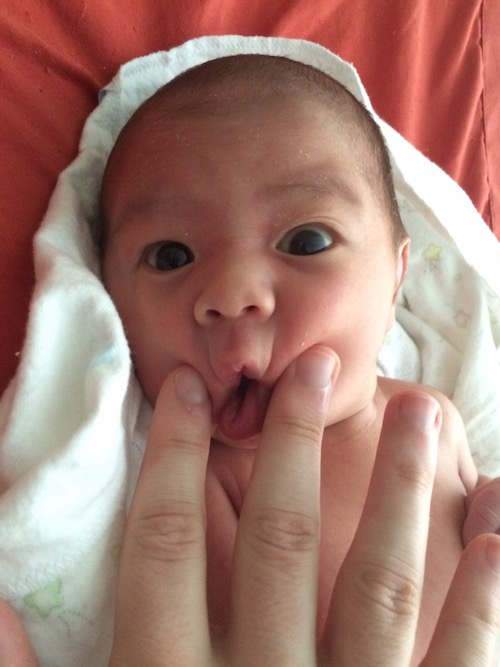A dad-to-be who is rather nifty with a computer has created a web app to sift through over 90,000 baby names from a social security database going back 140 years to come up with the perfect baby name that both he and his wife love.
Hilariously, they came up with Max.
Revealing all in a blog post, Nick Winter explained that each name in the database has been used “at least five times a year since 1880”.
That’s right, every name used more than five times a year went into one massive list. “Everything from John and Mary to Aaqil and Zyree,” he added.
Dad-to-be Nick then wrote a web app that ranks all the names according to the couple’s 12 algorithmic ranking criteria.
- Spellability: penalises names that sound similar to other common names, since people will not know how to spell them.
- Pronounceability: penalises names that we think could be pronounced two different ways, or which have Rs in them. (This is not a well-implemented metric.)
- Timelessness: penalises anything that’s extra old-fashioned, is extra trendy now, or was a fad name in the past.
- Relevancy: penalises very rare names (which often look like crazy typo gibberish).
- Rarity: penalises names that are very common.
- Secularity: penalises names that are clearly Biblical. (Should also include other religions, but doesn’t yet.)
- Shortness: penalises names with many letters or many syllables.
- Recitability: penalises names that aren’t easy to spell aloud (due to having W’s or slightly unclearly pronounced letters).
- Nicklessness: penalises names that have shorter nickname versions (like ‘Nicholas’).
- Nickedness: penalises names that are nicknames of longer names (like ‘Nick’).
- Chineseness: penalises names that would be hard to pronounce for native Chinese speakers due to unfamiliar consonant clusters and other sound patterns.
- Genderedness: penalises names that are ambiguously gendered.
To be fair, each and every parent faced with choosing a baby name have their own criteria that might eliminate a particular baby name. This list is no different, it is just… incredibly organised!
Nick explains in his post: “It puts all the names in order from best to worst, and then you start at the top and indicate your actual personal preference with like or hate buttons.
“So you are still choosing the names, but the app presents them in an efficient order. Partners in baby-naming can then also rank names according to their preferences, and you can see which names you both like.
“For me, this was the obvious way to do it.”
He was able to quickly narrow his list down to 3,600 names and liked 76 choices, while his wife Chloe worked her way through 3,700 and liked 81 names.
The couple then browsed through each other’s name choices and managed to whittle their total number of names down to 15.
With their last 15 choices, they used “the fridge test” to slash their list of potential baby names down to just two.
“Each day we would look up at the fridge… and take one down until only four remained and then eventually only two: Hazel and Max,” Nick said.
“Baby spawned male, so Max it was.”
And here is baby Max Winter, pulling an adorable face with the help of his dad.
Good job, Dad!
The app worked so well for Nick that he used it to decide on names for the couple’s second son Clark, and baby Ruby who was born in August.
This algorithm certainly works for this family – could it work for you, too? Check it out here: Bantling
Source: Nick Winter












